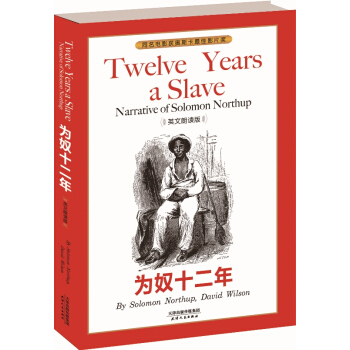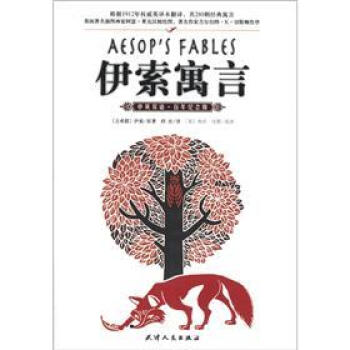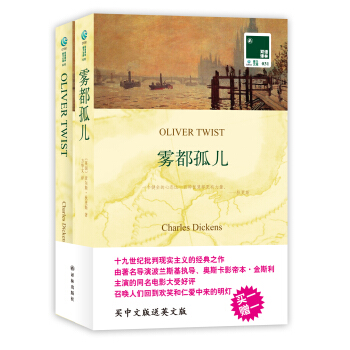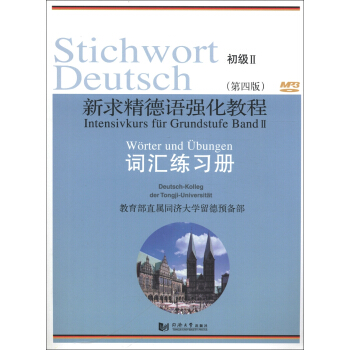

具体描述
编辑推荐
本书英文原著,在美国与《飘》、《汤姆叔叔的小屋》齐名,具有重大历史意义。作者所罗门·诺萨普原本是一个天生自由的非洲裔美国人,1841年,他在纽约被人诱骗绑架,贩卖成为一名奴隶,直到1853年才成功被营救。之后,他成为一个坚定的废奴主义者,并出版了这部回忆录《为奴十二年》。本书为全英文原版,同时配以美音朗读,让读者在品读作者不幸遭遇的同时,亦能提升英语阅读水平。
内容简介
《为奴十二年·Twelve Years a Slave(英文朗读版)》这本回忆录的作者所罗门·诺萨普,一个拥有自由的黑人小提琴手,在某个黑夜被拐卖到南方为奴,从此失去与家人的联系,为了生存他不得不掩饰自己的音乐技能,甚至要掩藏自己识字的能力。在这十二载的绝境中,历经磨难,九死一生的他不曾放弃的就是回家的愿望。最终在一位白人木匠的帮助下得以返乡,但直到最后拐卖他的真凶也并没有得到应有的惩罚,回忆录的尾声也未暗示黑奴的生存状态是否得以改善。
《为奴十二年·Twelve Years a Slave(英文朗读版)》的故事背景被放在了南北战争前夕这样一个宏观的大背景之下,而这部作品也十分出色地完成了为时代吹响号角的光荣使命。虽然那个时代离我们已经远去,“为自由而竭力奔跑”的内涵和价值却一直被人们所歌颂;回忆那段历史对于当下的意义不仅仅是以史为鉴,告诫世人“人人生而平等”,更是在为我们这些早已被各种物欲束缚的人提供一场精神救赎之旅。让我们跟随所罗门·诺萨普的视角,重新回到美国的黑奴时期,揭露那个时代的奴隶生活。
《为奴十二年·Twelve Years a Slave(英文朗读版)》情节“充满了愤怒、无奈、委屈和感动……这是一曲长达12年的悲伤挽歌,一曲长达12年的爱恋之曲……它很真实,它就是历史”。
作者简介
Solomon Northup (July 1808―after 1857) was a free-born African American from Saratoga Springs , New York . He is noted for having been kidnapped in 1841 when enticed with a job offer. When he accompanied his supposed employers to Washington D.C., they drugged him and sold him into slavery. From Washington D.C., he was transported to New Orleans where he was sold to a plantation owner from Rapides Parish, Louisiana. After 12 years in bondage, he regained his freedom in January 1853; he was one of very few to do so in such cases. Held in the Red River region of Louisiana by several different owners, he got news to his family, who contacted friends and enlisted the Governor of New York in his cause. New York state had passed a law in 1840 to recover African-American residents who had been kidnapped and sold into slavery. The circumstances of Northup's death are uncertain and no contemporary record of him exists from after 1857.
目录
Chapter1Chapter2
Chapter3
Chapter4
Chapter5
Chapter6
Chapter7
Chapter8
Chapter9
Chapter10
Chapter11
Chapter12
Chapter13
Chapter14
Chapter15
Chapter16
Chapter17
Chapter18
Chapter19
Chapter20
Chapter21
Chapter22
Roaring River
Appendix
精彩书摘
Chapter I.
Having been born a freeman, and for more than thirty years enjoyed the blessings of liberty in a free State—and having at the end of that time been kidnapped and sold into Slavery, where I remained, until happily rescued in the month of January, 1853, after a bondage of twelve years—it has been suggested that an account of my life and fortunes would not be uninteresting to the public.
Since my return to liberty, I have not failed to perceive the increasing interest throughout the Northern States, in regard to the subject of Slavery. Works of fiction, professing to portray its features in their more pleasing as well as more repugnant aspects, have been circulated to an extent unprecedented, and, as I understand, have created a fruitful topic of comment and discussion.
I can speak of Slavery only so far as it came under my own observation—only so far as I have known and experienced it in my own person. My object is, to give a candid and truthful statement of facts: to repeat the story of my life, without exaggeration, leaving it for others to determine, whether even the pages of fiction present a picture of more cruel wrong or a severer bondage.
As far back as I have been able to ascertain, my ancestors on the paternal side were slaves in Rhode Island. They belonged to a family by the name of Northup, one of whom, removing to the State of New York, settled at Hoosic, in Rensselaer county. He brought with him Mintus Northup, my father. On the death of this gentleman, which must have occurred some fifty years ago, my father became free, having been emancipated by a direction in his will.
Henry B. Northup, Esq., of Sandy Hill, a distinguished counselor at law, and the man to whom, under Providence, I am indebted for my present liberty, and my return to the society of my wife and children, is a relative of the family in which my forefathers were thus held to service, and from which they took the name I bear. To this fact may be attributed the persevering interest he has taken in my behalf.
Sometime after my father’s liberation, he removed to the town of Minerva, Essex county, N. Y., where I was born, in the month of July, 1808. How long he remained in the latter place I have not the means of definitely ascertaining. From thence he removed to Granville, Washington county, near a place known as Slyborough, where, for some years, he labored on the farm of Clark Northup, also a relative of his old master; from thence he removed to the Alden farm, at Moss Street, a short distance north of the village of Sandy Hill; and from thence to the farm now owned by Russel Pratt, situated on the road leading from Fort Edward to Argyle, where he continued to reside until his death, which took place on the 22d day of November, 1829. He left a widow and two children—myself, and Joseph, an elder brother. The latter is still living in the county of Oswego, near the city of that name; my mother died during the period of my captivity.
Though born a slave, and laboring under the disadvantages to which my unfortunate race is subjected, my father was a man respected for his industry and integrity, as many now living, who well remember him, are ready to testify. His whole life was passed in the peaceful pursuits of agriculture, never seeking employment in those more menial positions, which seem to be especially allotted to the children of Africa. Besides giving us an education surpassing that ordinarily bestowed upon children in our condition, he acquired, by his diligence and economy, a sufficient property qualification to entitle him to the right of suffrage. He was accustomed to speak to us of his early life; and although at all times cherishing the warmest emotions of kindness, and even of affection towards the family, in whose house he had been a bondsman, he nevertheless comprehended the system of Slavery, and dwelt with sorrow on the degradation of his race. He endeavored to imbue our minds with sentiments of morality, and to teach us to place our, trust and confidence in Him who regards the humblest as well as the highest of his creatures. How often since that time has the recollection of his paternal counsels occurred to me, while lying in a slave hut in the distant and sickly regions of Louisiana, smarting with the undeserved wounds which an inhuman master had inflicted, and longing only for the grave which had covered him, to shield me also from the lash of the oppressor. In the church-yard at Sandy Hill, an humble stone marks the spot where he reposes, after having worthily performed the duties appertaining to the lowly sphere wherein God had appointed him to walk.
……
前言/序言
When the editor commenced the preparation of the following narrative, he did not suppose it would reach the size of this volume. In order, however, to present all the facts which have been communicated to him, it has seemed necessary to extend it to its present length.
Many of the statements contained in the following pages are corroborated by abundant evidence—others rest entirely upon Solomon’s assertion. That he has adhered strictly to the truth the editor, at least, who has had an opportunity of detecting any contradiction or discrepancy in his statements, is well satisfied. He has invariably repeated the same story without deviating in the slightest particular, and has also carefully perused the manuscript, dictating an alteration wherever the most trivial inaccuracy has appealed.
It was Solomon’s fortune, during his captivity, to be owned by several masters. The treatment he received while at the “Pine Woods” shows that among slaveholders there are men of humanity as well of cruelty. Some of them are spoken of with emotions of gratitude—others in a spirit of bitterness. It is believed that the following account of his experience on Bayou Boeuf presents a correct picture of Slavery in all its lights, and shadows, as it now exists in that locality. Unbiased, as he conceives, by any prepossessions or prejudices, the only object of the editor has been to give a faithful history of Solomon Northup’s life, as he received it from his lips.
In the accomplishment of that object, he trusts he has succeeded, notwithstanding the numerous faults of style and of expression it may be found to contain.
DAVID WILSON.
WHITEHALL, N. Y., May, 1853.
用户评价
这部有声书的成功,很大程度上归功于其流畅性和易接受度。即便对于一些英语非母语的听众来说,清晰的咬字和适中的语速也极大地降低了理解门槛。我曾推荐给几位正在学习高级英语的朋友,他们反馈说,相比于阅读原著,通过听力来接触这类具有历史厚重感的文本,可以更有效地捕捉到那些书面语中不易察觉的语气和情感色彩。整个演绎过程没有任何令人分心的口误或不自然的重复,这表明录制和后期制作团队投入了极大的心血。它成功地将一部严肃的文学作品,转化为了一种高效且引人入胜的媒介体验。说实话,在如今市场上充斥着大量粗制滥造的有声书的背景下,能找到这样一个在内容深度和技术执行力上都无可挑剔的版本,实属难得,绝对物超所值,值得反复品味。
评分从纯粹的制作技术角度来看,这个英文朗读版的音频工程处理水平达到了专业播客甚至广播剧的标准。音质纯净得让人赞叹,几乎听不到任何环境噪音或录音室的瑕疵。音量平衡控制得恰到好处,无论是对白语速的快慢变化,还是偶尔出现的停顿,都处理得犹如行云流水般自然。我尝试在不同的播放设备上试听,从降噪耳机到车内音响,效果始终保持着高度的一致性和清晰度,这对于需要长时间专注聆听的长篇叙事作品来说至关重要。我注意到,朗读者在处理不同角色的情绪转换时,运用了非常细腻的声线变化,虽然整体是单人演绎,但听起来却像是一部多角色的舞台剧。这种高水准的制作,极大地提升了听书的体验,让我在忙碌的生活中,有了一种高品质的“陪伴”,感觉自己是在聆听一个经过精心打磨的艺术品,而不是一份简单的有声资料。
评分我是一个对语感和节奏要求比较高的人,尤其偏爱英美口音的细微差别。这个版本所采用的口音辨识度很高,腔调既不偏激,也不过于平淡,带着一种古典文学的韵味,非常适合这种严肃题材的演绎。在听的过程中,我甚至会不自觉地去模仿他的一些发音技巧,这对我提高自己的英语听力也有了额外的帮助。朗读的节奏把握得非常有张力,该快则快,推进情节;该慢则慢,让听者有足够的时间去消化那些令人心痛的细节。这种节奏的起伏,就像是乐队指挥手中的指挥棒,精准地调动着听者的情绪。很多次,我都能清晰地感受到朗读者在“吸气”和“换气”之间的停顿,这些看似微不足道的细节,恰恰是区分业余和专业的关键所在,它体现了演绎者对文本的尊重和投入。
评分坦白说,我一开始有些担心,毕竟涉及到如此沉重的主题,找到一个既能准确传达原文精髓,又不会过度煽情以至于让人无法承受的朗读者是很难的。然而,这位朗读者的处理方式简直堪称教科书级别。他似乎对原文的语境有着深刻的理解,选词和重音的放置,总是精准地落在了那些最能揭示人物复杂心态的位置上。尤其是在描述那种无助和屈辱时,他选择了一种冷静的叙述方式,这种“冷”反而比“热”更能带给人一种毛骨悚然的真实感。它迫使听众必须用自己的想象力去填补那些未被言明的情感空缺,从而形成一种更深层次的共鸣。这种克制的艺术手法,让这部作品不仅仅停留在历史记录的层面,更上升到了对人性深处的探讨。听完一个部分后,我常常需要暂停几分钟,整理一下思绪,这种“被震撼到”的感觉,是很多其他有声书难以给予的。
评分这本有声书的质量真是出乎我的意料,从头到尾的叙述都保持着一种沉稳而引人入胜的基调。旁白的声音极富磁性,发音清晰有力,每一个音节都像是经过精心打磨的宝石,闪烁着历史的重量感。更让我欣赏的是,他并非仅仅是机械地朗读文字,而是真正地在“讲述”故事,通过语调的细微变化,将人物内心的挣扎、绝望与希望的微光刻画得淋漓尽致。我经常在通勤路上聆听,每每结束一章,都会感觉自己仿佛刚刚经历了一场深刻的心灵洗礼。背景处理得也非常到位,没有喧宾夺主,只是在关键时刻提供了一种恰到好处的氛围烘托,让人更容易沉浸在那段特定的历史场景之中。对于那些希望通过听觉媒介来深度体验经典作品的朋友来说,这绝对是一个不容错过的版本,它让原本可能略显厚重的文本,变得可亲近且充满生命力。我尤其喜欢他对那些充满痛苦和不公的段落的处理,那种克制却又饱含力量的表达,比任何激烈的嘶吼都更具穿透力,直击人心最柔软的地方。
评分比我想象中的要小。。。内容还好吧!
评分还好还好哈还好还好哈
评分包装看着挺好的,书的质量也不错。希望孩子看完能有帮助吧。京东速度一流。
评分99元选了10本自己喜欢的书,很开心,质量也不错。
评分挺便宜的吧。。太久没看书了。。买来充实下自己。。
评分不错不错,是正版的图书,给儿子看的,孩子很喜欢,不错。
评分不大不小,拿着正好,不错的。
评分买来学英语。。。。
评分不错不错,是正版的图书,给儿子看的,孩子很喜欢,不错。
相关图书
本站所有内容均为互联网搜索引擎提供的公开搜索信息,本站不存储任何数据与内容,任何内容与数据均与本站无关,如有需要请联系相关搜索引擎包括但不限于百度,google,bing,sogou 等
© 2026 book.coffeedeals.club All Rights Reserved. 静流书站 版权所有






![走遍美国(套装上下册 盒装书 全新版 附DVD光盘6张+学习辅导1本) [Family Album U.S.A] pdf epub mobi 电子书 下载](https://pic.windowsfront.com/10536065/rBEGDVAiOm0IAAAAAAD7fkPC5rgAABV7AIMH8gAAPuW655.jpg)




![牛津高阶英汉双解词典(第7版 缩印本) [Oxford Advanced learners English-Chinese Dictionary] pdf epub mobi 电子书 下载](https://pic.windowsfront.com/10053914/c9a71b48-8afe-4e22-9510-2855cf283e53.jpg)
![双语译林:茶花女(附英文原版书1本) [The Lady of the Camellias] pdf epub mobi 电子书 下载](https://pic.windowsfront.com/10876354/6f66859b-c2c6-4f2d-bf84-84439a0705d8.jpg)







